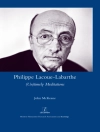The Irish Revival has inspired a richly diverse and illuminating body of scholarship that has enlarged our understanding of the movement and its influence. The general tenor of recent scholarly work has involved an emphasis on inclusion and addition, exploring previously neglected texts, authors, regional variations, and international connections. Such work, while often excellent, tends to see various revivalist figures and projects as part of a unified endeavor, such as political resistance or self-help. In contrast, The Irish Revival: A Complex Vision seeks to reimagine the field by interpreting the Revival through the concept of ‘complexity, ‘ a theory recently developed in the information and biological sciences.
Taken as a whole, these essays show that the Revival’s various components operated as parts of a network but without any overarching aim or authority. In retrospect, the Revival’s elements can be seen to have come together under the heading of a single objective; for example, decolonization broadly construed. But this volume highlights how revivalist thinkers differed significantly on what such an aspiration might mean or lead to: ethnic authenticity, political autonomy, or greater collective prosperity and well-being. Contributors examine how relationships among the Revival’s individual parts involved conflict and cooperation, difference and similarity, continuity and disruption. It is this combination of convergence without unifying purpose and divergence within a broad but flexible coherence that Valente and Howes capture by reinterpreting the Revival through complexity theory.
Over de auteur
Joseph Valente is UB Distinguished Professor of English and Disability Studies at the University of Buffalo. He has authored and coedited many books in Irish studies, including The Myth of Manliness in Irish National Culture, 1880-1922. Marjorie Howes is associate professor at Boston College. She is the author of Yeats’s Nation: Gender, Class, and Irishness, winner of the Michael J. Durkan Prize for Best Book on Language and Culture and Colonial Crossings: Figures in Irish Literary History.












